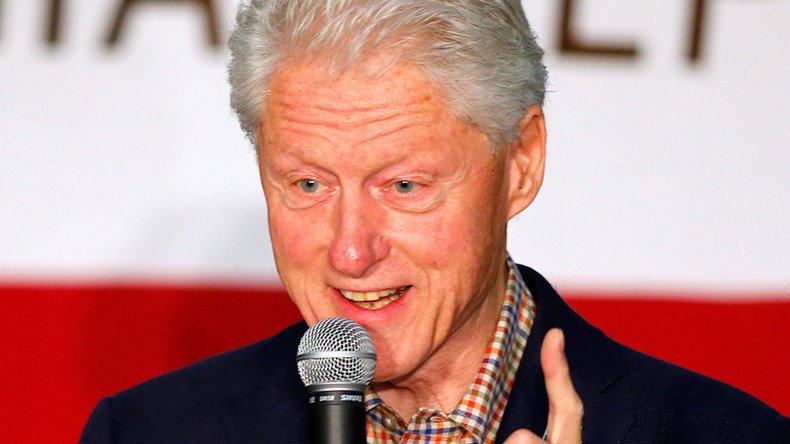Bill Clinton's 1994 crime laws continue to haunt him on Hillary's campaign

Bill Clinton was once again asked to justify the Violent Crime Control and Law Enforcement Act of 1994 on Friday at an event for Hillary Clinton’s campaign in Paterson, New Jersey. An audience member questioned Clinton about the efficacy of the bill.
“Why did you put more people in prison?” an audience member asked the former president.
The ex-president tried to highlight the benefits of the bill. The bill is frequently blamed for a spike in incarceration rates which opened a Pandora’s Box of other problems such as prison overcrowding, broken communities and incentivizing states to build prisons and increase sentences.
Anyone but them: US voters' main motivation is blocking other candidate https://t.co/NhANN5QTkv#notjusttwopartiespic.twitter.com/8fhDkWZqMT
— RT America (@RT_America) May 6, 2016
It was written and signed by Clinton and endorsed by the vast majority of Congress – including Hillary Clinton’s primary rival, Bernie Sanders.
Clinton pointed out a few things about the bill. The first is that it included a provision that exempted first time drug offenders from certain mandatory minimum sentencing. Mandatory minimum sentencing is controversial in the US, and the federal government has begun encouraging the repeal of stringent sentencing laws and has granted clemency to non-violent offenders.
In 1995, Clinton signed a bill that made the sentencing for dealing crack cocaine much longer than for dealing powdered cocaine. The “100 to 1” method of sentencing crack cocaine dealers as opposed to powder cocaine dealers made dealing a single gram of crack cocaine equal to dealing 100 grams of powdered cocaine under Clinton’s law.
At the time, Clinton defended the measure saying, "trafficking in crack, and the violence it fosters has a devastating impact on communities across America, especially inner-city communities.”
“Tough penalties for crack trafficking are required because of the effect on individuals and families, related gang activity, turf battles and other violence," he added.
“Bill Clinton presided over the largest increase in federal and state prison inmates of any president in American history,” legal scholar Michelle Alexander told Salon, adding that he “supported the 100-to-1 sentencing disparity for crack versus powder cocaine, which produced staggering racial injustice in sentencing and boosted funding for drug-law enforcement.”
In July 2015, at a NAACP convention, Clinton said, “I signed a bill that made the problem worse. And I want to admit it.”
When Clinton left office in 2001, the nation had the highest incarceration rate in the world, Salon reported.
Clinton defended himself on Friday by arguing that the 1994 bill led to the lowest crime rate in 25 years, a 33 year low in murder rates and a 46 year low in illegal gun deaths. However, FactCheck.org has accused Bill Clinton of exaggerating the effects of the bill, saying, “Independent analyses have found that the bill had a modest effect on crime rates.”
However, Clinton also defended the higher sentencing by claiming that “we could not pass that bill without the higher sentencing.”
Politico reported that the person who asked the question was escorted out of the event, to which Clinton said, “he went off mad because I told him the truth. That’s not good for any of us. Nobody’s right all the time. Nobody.”












